By Albert Oppong-Ansah, GNA
Kpeshie (G/R), Jan. 9, GNA – This time of year has always been a nightmare for Mavis Adjare.
Seasonal floods have been disruptive for the 45-year-old who makes her living collecting plastic waste and selling it to recyclers.
This year that has changed. Mavis picks 100 kilogramme bags of plastic waste easily here at the confluence of the Kpeshie River and the Atlantic Ocean.
Until mid 2022, the mother of three says, the onset of rain or hot weather threatened her livelihood and the future of her children. Mavis used to comb lorry stations and Accra suburbs -Tseaddo and Teshie – for plastic waste. Now she picks the plastics with ease.
“All I see is plastic waste of different shades, colours and sizes, swimming through the Kpeshie Lagoon into the sea,” Mavis says with joy.
The task of clearing the vast amounts of plastics and other waste that wash onto beaches here has been a major concern for operators of some of Accra’s most popular leisure facilities – the Labadi Beach Hotel and the La Bomah Beach – located along the shore.
The waste, 80 per cent of it plastic, is often collected and set ablaze at the shore- a major worry for the Environmental Protection Agency (EPA), which says the practice is a growing source of air pollution in Ghana’s capital.
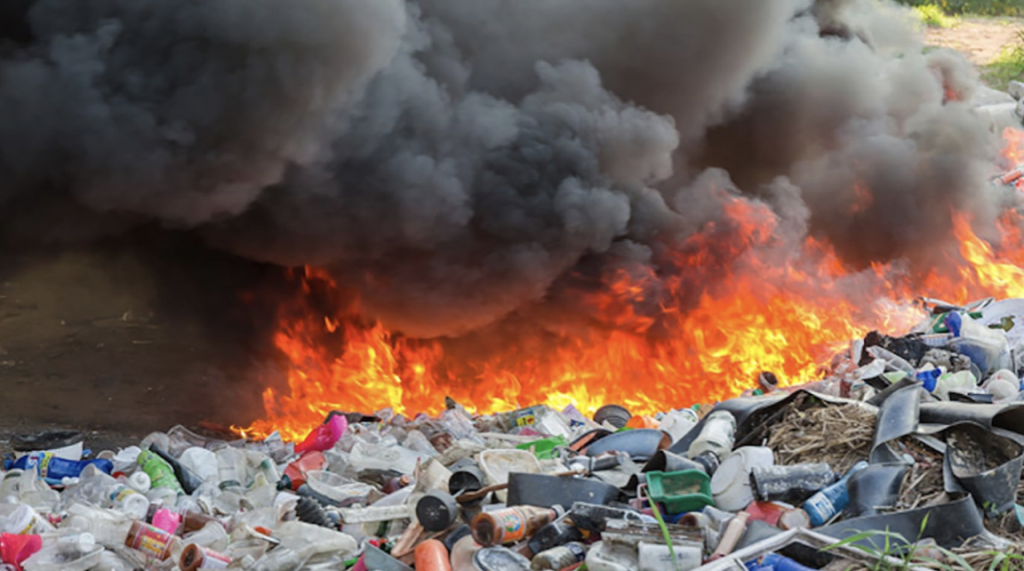
The Kpeshie Lagoon is just one of the many lagoons along Ghana’s 550-kilometer coast through which tonnes of waste plastic leaks into the sea.
Nine per cent of the nearly one million metric tonnes of plastic waste generated in Ghana annually leaks into the ocean, according to the Ministry of Environment, Science, Technology and Innovation (MESTI).
It leaks because so much of Ghana’s plastic waste – nearly 90 per cent – is not properly disposed, clogging up stormwater drains, rivers, and streams and ending up in the oceans, according to a 2020 report by the World Bank.
Many collectors, including Mavis, have joined associations that coordinate their activities to turn ‘waste’ to cash to enhance their livelihoods.
But plastics in the oceans and rivers are impossible for collectors to reach meaning they miss out on income. They also miss out on income when plastics are burned.
Elvis Oppong, president of the Plastic Waste Collector Association, says only 20 per cent of plastic bottles and 70 per cent of water sachets are retrieved by the Association.
“Due to lack of space, the majority of the bottle plastics waste are burnt while others go into the marine bodies,” Oppong says.
Plastic waste is now a major global problem. A recent analysis by charity Tearfund found that plastic waste is spiraling out of control across Africa.
It predicts that Africans will discard 116 million tonnes of waste annually by 2060 – a sixfold increase from 2019. This is driven by demand for plastic within sub-Saharan Africa.
Plastic waste destroys drainage systems and adds to air pollution but it also threatens food supplies. It has killed so much fish and sealife that many fisheries are on the brink of collapse.
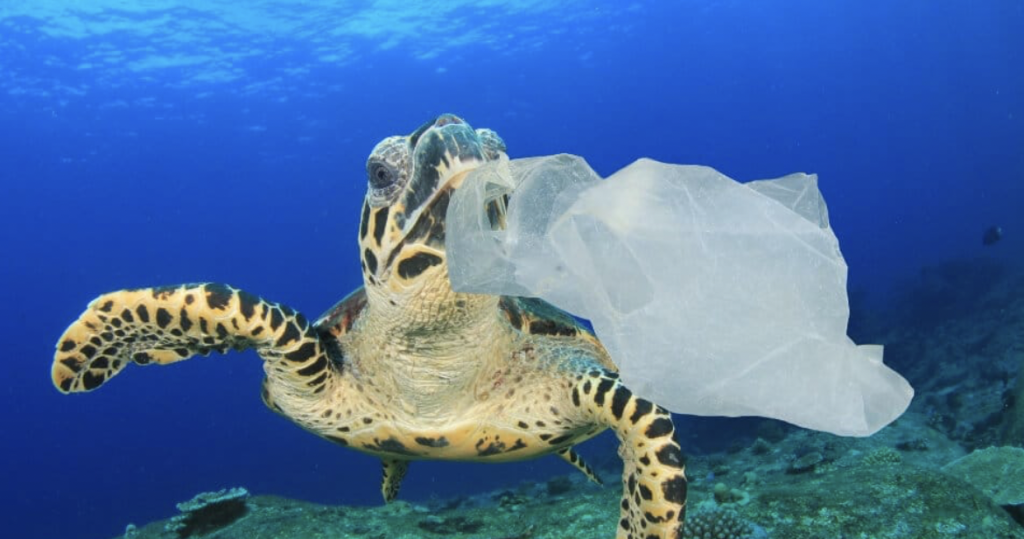
The United Nation Environmental Programme estimates that Ghana’s contribution to global marine debris is as much as 260,000 metric tonnes every year, or one to three per cent of the global total.
UNESCO’s International Oceanography Commission pegs plastic and microplastics in the ocean at about 50-75 trillion pieces.
The yearly economic costs of plastic in the ocean are estimated to be between $US6-19 billion globally.
New Innovation collects waste from rivers
A new pilot project launched here in Kpeshie seeks to help solve the problem. Riverrecycle, a Finland-based organization, is working to remove plastic waste from the world’s waterways while enabling the most affected communities to prosper in a circular economy.
In January 2022, the company and its partners – Beach Clean Up Ghana Limited and Ambitious Africa – began collecting plastic waste from the Kpeshie Lagoon.
The organisation created a “trash boom” — a floating barge stretched across a river – to capture plastic waste as the currents take it downstream. The boom consists of floats made from standard plastic piping, attached to wire mesh barriers that resemble fencing.
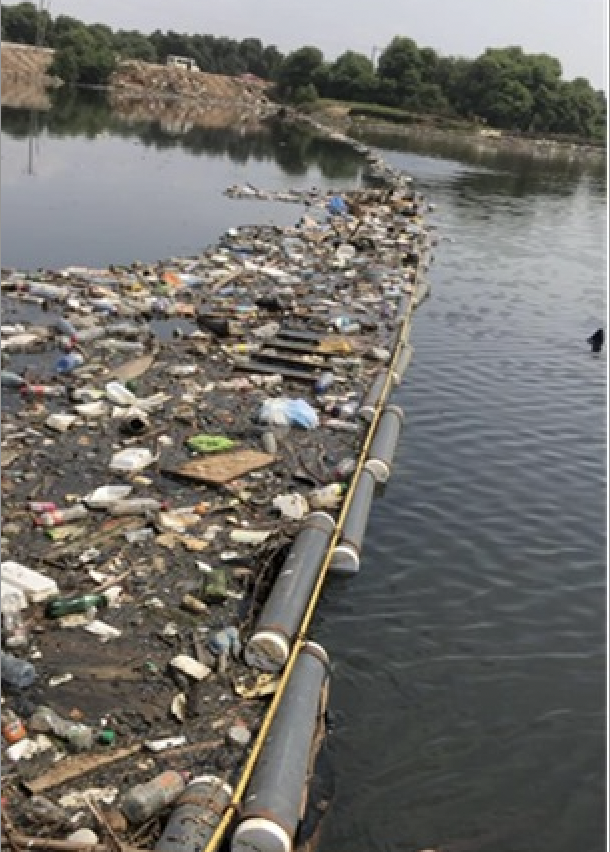
The mesh barrier extends into the water to capture pieces of plastic floating below the surface. It is anchored by ropes to the bank of the river.
Mr John Adelegan, who leads the implementation, explains that every river is unique. The team must first gather information to specifically design the plastic recovery system for this river.
There have been setbacks – the system was damaged by large floating logs and stumps – but the team redesigned it and has seen improved results.
“The changes include the use of steel piles and concrete blocks to make the system more resistant to erosion, high-density polyethylene pipe instead of polyvinyl chloride and a second floater to ensure float even if one floater is damaged,” Mr Adelegan explains.
The project is providing both permanent and casual jobs to nearly 200 people. The majority are women – mostly engaged in collecting discarded plastics and factory work. Mr Adelegan says the project has signed an agreement with fisher folks to clear heavy objects that block the recovery system.
For the first three months, the system collected 30 tonnes of low value (single use) plastics and polyethylene terephthalate (PET). The low value plastics are recycled into boards, which are used to produce furniture, a substitute for wood while the PET is shredded into flakes for export.
With a broad smile, Mr Adelegan says already two leading beverage companies have placed orders to buy plastic boards for their partners.
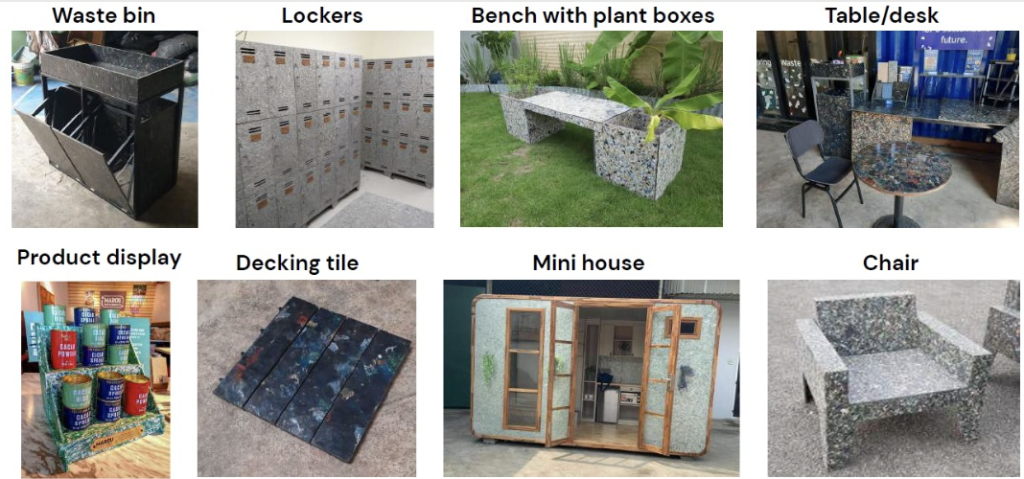
“A total of 20 tonnes of baled waste plastics are in the process of being exported to Portugal from the companies. Other companies in Spain and Turkey have signed up to buy the PET flakes,” he says.
The river cleaning project will be extended to the Odorna River and Korle Lagoon – the “richest lagoon” in Ghana where there have been extensive efforts to clean up in recent years.
Finding alternatives for discarded plastic is becoming crucial in countries like Ghana. A visit to communities like Kpong land fill site, Agbobloshie, Mamprobi, Kanashie, Dansoman, Adentan and Jamestown that are becoming overwhelmed with plastic waste makes it obvious how much of a burden it is becoming.
Experts in waste management and environment protection applaud recycling efforts such as the one in Kpeshie.
Mr Henrique Pacini, Economic Affairs Officer at the United Nations Conference on Trade and Development, says embracing the concept of “circularity” – where resources, particularly plastics, are reused and recycled repeatedly – will help fast track development in lower income countries like Ghana.
“This is because their economies are based on natural resources. With circularity, things considered waste in the lineal system will be used to produce something new,” Mr Pacini says.
Circularity would help countries reduce or eliminate imported single use plastics that can burden local economies with clean up and pollution costs and increase dependence on foreign imports.
By recycling plastics, Mr Pacini says, Ghana can make savings and be a good steward of the environment.
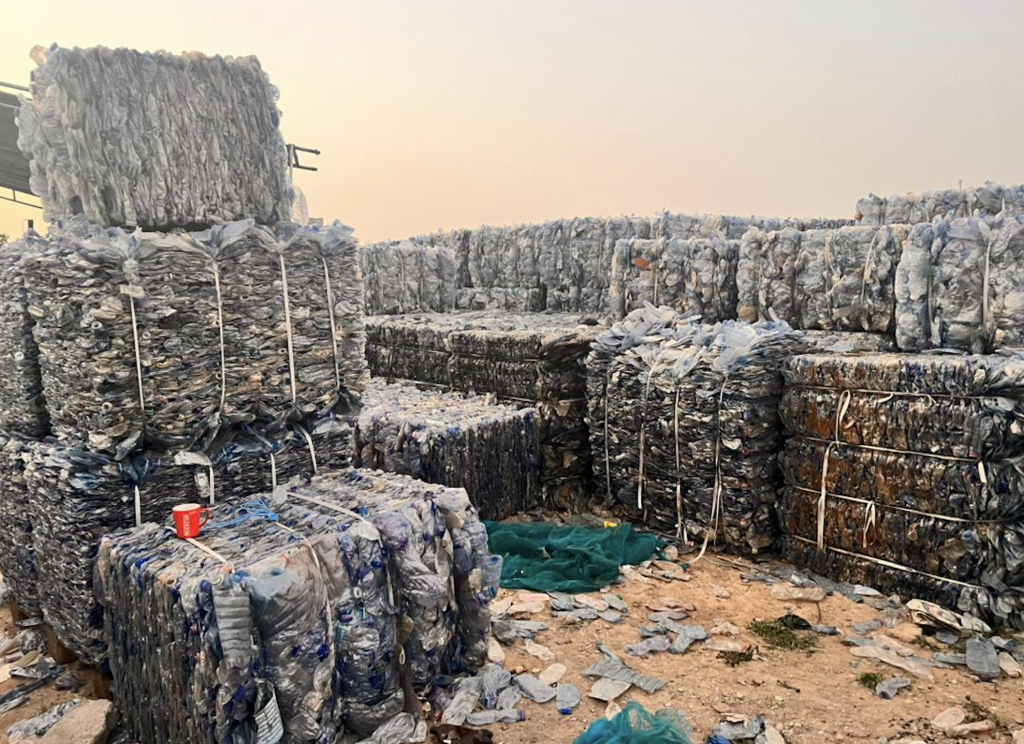
The Ghanaian government has recognised the need to address the problem. In 2018 the Ministry of Environment, Science, Technology and Innovation developed a National Plastics Management Policy.
It aligns with the circular economy-based management recommended by the UN’s Mr Pacini, encouraging businesses based on recovering, reusing, recycling, and re-manufacturing of plastic waste and eliminating single use plastics.
The policy is currently being revised by government.
According to Dr Henry K. Kokofu, Executive Director of the Environmental Protection Agency, the revised policy will focus on prevention and other innovative strategies, including issuing producers who package products in plastic with unique codes, which they will be required to retrieve or face sanctions.
Dr Kokufo rules out a total ban of single used plastics saying it will be too big a burden on Ghanaian companies and the economy. “Companies have huge investment and banning it might have repercussion on their operations,” he says.
But the government’s plans do not go far enough for some stakeholders.
“It is not robust enough” says Mr Solomon Noi, Director, Waste Management Department at the Accra Metropolitan Assembly, who says that the “war” on plastics cannot be won with the current approach.
Mr Noi says private sector actors like Riverrecycle are important but he says a stronger political will is needed to deal with the plastic waste menace including waste at sea.
He wants to see the sector governed by regulations that account for all plastics, not just those that are produced in country but imported, establishment of buy-back and transfer centres where people can take their plastics, and creation of standard incineration plants that is of world class standard.
Mr Noi, a sanitary engineer with over 20 years’ experience, says tackling the plastic waste polluting Ghana’s seas is essential to improve Ghana’s supply of fish and seafood.
But it is an immensely expensive exercise given the vast size of the ocean and the variety of plastics including nano-plastics that are too small for the eye to see but poison sea life.
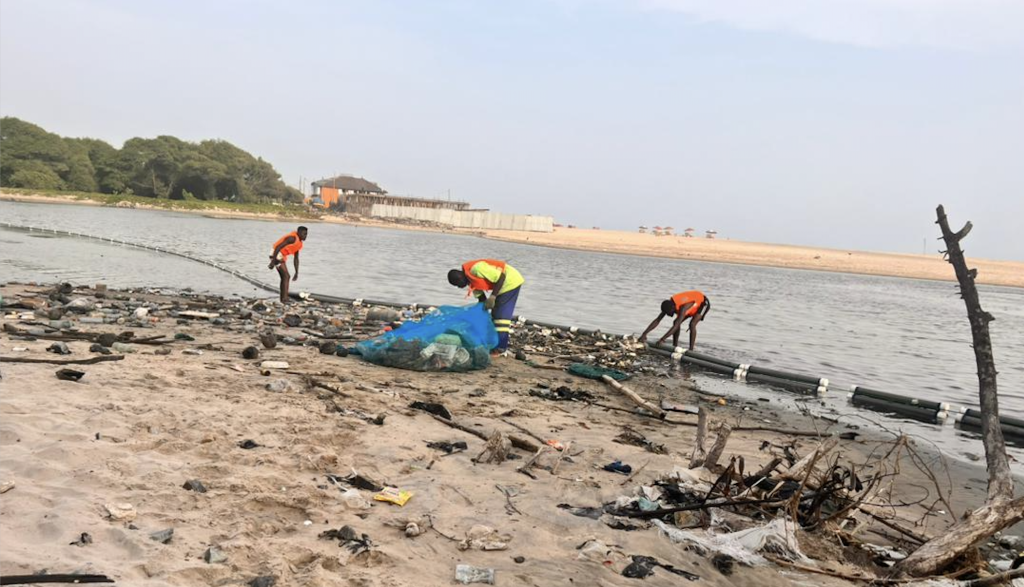
“They are lightweight, spread fast, seen everywhere, once left uncollected they choke the gutters, break into nano plastics and head into the ocean,” says Mr Noi. “We need to clean the plastic mess on the land and recycle it so it does not stockpile the ocean.”
The massive work of cleaning plastics from the ocean is not on the agenda for now but at least for people like Mavis and those living around the Kpeshie Lagoon Riverrecyle’s efforts offer relief from the seasonal onslaught of plastic waste and a hope for a cleaner environment for her children.
GNA
This story was a collaboration with New Narratives. Funding was provided by the Clean Air Fund. The funder had no say in the story’s content.